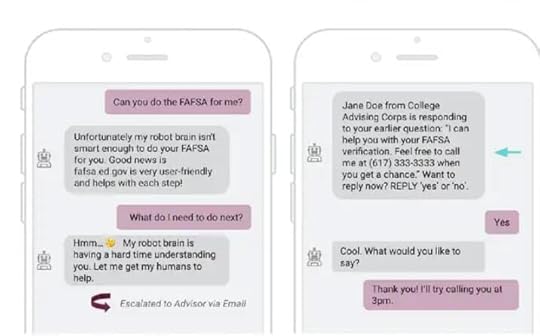Chat GPT and your kid? Kids are already thinking critically about AI
I’ve been on the road (and on Zoom) talking with parents and educators this fall, and one question keeps rising to the top: AI ethics and safety.
Parents share worries—kids relying on AI for homework, or scary headlines about harmful chatbot interactions. Those concerns are valid, but here’s the hopeful part: when we ask how and when AI might be used, we can guide kids toward ethical, empowering choices.
The big questions I hear are:
When is it ethical for students to use AI?Does it undermine—or enhance—learning?And when might it actually be positive?Schools are scrambling to catch up, and most teachers don’t feel ahead of the curve. That’s okay—this is a brand-new frontier. As with earlier digital shifts, the key is mentoring, not just monitoring.
Detection tools and bans only go so far. In fact, many of the detection tools catch original work in their dragnet, with serious consequences. Schools that over-rely on automated detection but don’t proactively teach students when and how AI might be OK to use are missing a crucial learning need.
What students really need is to be listened to. They need assignments that invite true learning and engagement– and that can’t be so easily outsourced.
We need to ask ourselves: Do traditional assignments still serve their purpose? It’s time to rethink assignment design.
For a deep dive, Stanford professor Dr. Sarah Levine recently spoke about students and AI for The Parent Venture.
From a recent Common Sense report on AI:
“Teens are not passive observers in this rapidly evolving landscape. They’re actively advocating for safeguards around AI, with nearly three-quarters supporting privacy protections, content warnings, and labeling of AI-generated content.”
We need to stay committed to centering youth voices. Here is what some teenagers have said on the topic. (hitting a paywall? try your library or subscribe.)
In my own household, we use AI sparingly, mostly because of its devastating environmental impact. In many cases, there are great alternatives.
Vacation planning: Turns out there are books and blog posts all about Hawaii. Using AI to plan that trip is like using a jackhammer to drive a thumbtack.Figuring out the best approach to a calculus problem: try Khan Academy, go to the Lit Center at school for help, etc.Sports Injury: always consult real doctor, or physical therapist or your coach– never a chatbot/AI.College Search: Proceed with caution–there is some spectacularly misleading information from the apps. I’d limit my use for this purpose, though there are ways it can be helpful.On the other hand, Oli, the Common Apps’ chat bot is designed to make the application process There is real promise in using well-designed tools, especially when we know that many students don’t have access to college counseling. I love this example (below) of the bot admitting its limitations and sending the student some human help!

Want to start a conversation at home?
Try asking your teen:
As education consultant Laura Barr reminds us:
“What colleges and teachers value isn’t just the ‘right answer,’ but original thought. If students can’t explain their work or don’t remember writing it, it’s not really theirs.”
AI is a powerful tool–but it can be wrong in hilarious or even dangerous ways. It uses a lot of resources. Also, it can erase our personal voice or edit out details that it decides are unimportant. Our caution is warranted! But it is too important a tool to simply ignore or ban–especially since its use is already widespread.
We need to keep the conversation open so we can proactively mentor kids. Feel free to reach out you are seeking support or consulting on school tech policies or to share your thoughts on AI in the classroom and beyond.
The post Chat GPT and your kid? Kids are already thinking critically about AI first appeared on Devorah Heitner.



